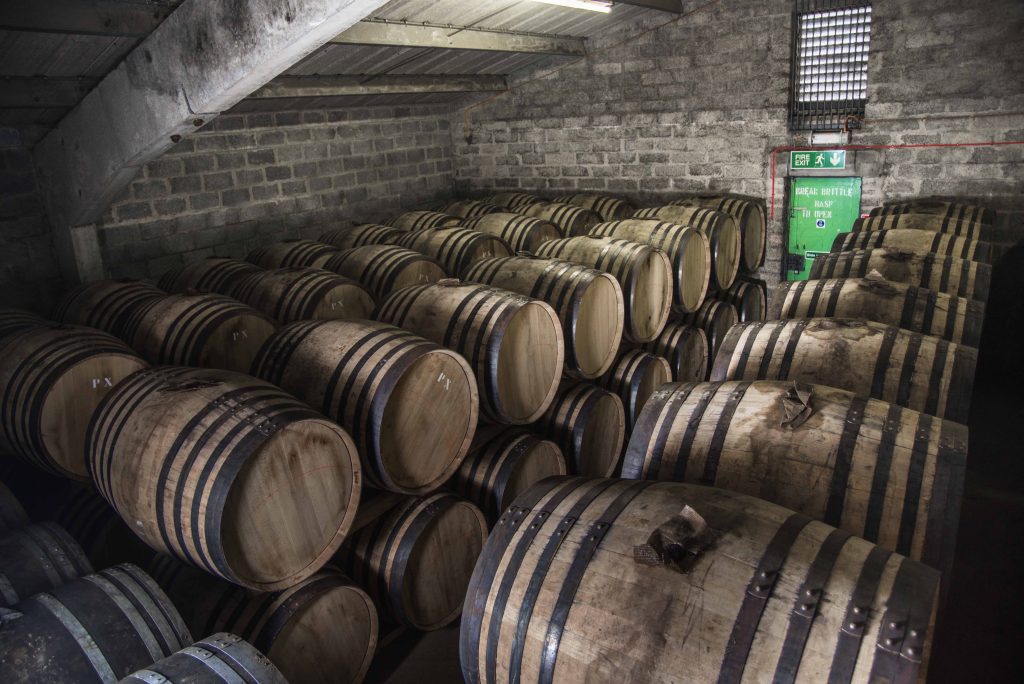Today, Ian Buxton returns to one of his favourite topics, buying whisky in cask. He’s come up with some tips to help you not to get scammed. Here are seven tips for investing in whisky.
I was thrilled to see Dr Nick Morgan’s piece here last week on whisky investment scams from the 1960s and ‘70s. It’s strange, but like the proverbial bad penny, these things keep coming around.
More than one hundred years ago people were getting fooled, thanks to the Pattison brothers but it seems we never learn. Skipping over Dr Morgan’s examples, we can fast forward to the £10m Cavendish Hamilton Cask Management ‘investment’ debacle of the early 2000s. And, not to say I’ve already warned you – but I’ve already warned you here, more than once.
So, how to be sure the great British public won’t get fooled again? Here’s my simple, seven-step, cut-out-and-keep, whisky investment guide.

You could make a fortune out of investing in whisky. But you probably won’t
Seven tips for investing in whisky
1) Don’t!
And this is my TOP TIP. Retire to a quiet, dimly-lit room with a large dram of your favourite whisky and repeat to yourself the sacred mantra ‘whisky is for drinking; whisky is for drinking’. Try to imagine setting alight a huge pile of money – your savings. Imagine your partner’s reaction when you show them the ashes of your carefully-planned future. Then drink more of that delicious whisky.
If the fever has not passed then this is what you need to know.
2) Distilleries can go under
Remember that distilleries can and do fail. So, if you decide to buy a cask from one of the more recently-opened operations, bear in mind that it may not be around by the time you want to sell. Even if they survive, their whisky is highly unlikely to be in anyone’s blend recipe so there will be virtually no trade market for your cask. You’re effectively just supporting a new start-up: fun, emotionally satisfying but an investment only in your pleasure.
3) Don’t pay too much
Be aware that prices for private casks have increased substantially in recent years. Once the cost was set by the trade price for fillings and was a modest premium on what the industry paid. Today, all too often it’s little more than a slight discount on the eventual retail price. In other words, you’re being asked mature whisky prices for new make. The easy money has left the building.
4) Do some digging
Don’t just take their word for it. Don’t be impressed by a glossy brochure or slick website and never, ever fall for phone calls pressing you for an immediate payment suggesting you will miss a ‘once-in-a-lifetime opportunity’. Check out the people behind the pitch. The web doesn’t forget, so be prepared to dig and don’t be surprised to find a dodgy history. If there are no names obvious then smell a rat. Search names at Companies House (it’s free). If your promoters have a history of failed companies or a suspiciously long list of directorships, then walk away.

Ian Buxton contemplating buying a cask of whisky
5) Make sure you have a Delivery Order
You have to get the Delivery Order (Do). Do not accept a ‘Certificate of Ownership’ or similar document from an intermediary, it’s spurious. Without the Delivery Order if something goes wrong you’re on your own. And, it may sound obvious, but check first that the person selling you the cask actually owns it themselves.
Think of the DO like the V5C for a car – the owner’s logbook. But know this: when you buy a car, you’ve bought it. It’s yours. Now imagine that the manufacturer could step in at any time, perhaps years later, and tell you how far or how fast you could drive it. Or who you could take as a passenger. You might come to think that you don’t actually ‘own’ the vehicle after all, even though you parted with the money. Be aware that many of the casks sold today to private buyers come with strict caveats on what you can and can’t do with the whisky – so if you plan to bottle and retail it at huge profit, think again because the small print often explicitly forbids this. Don’t imagine that you can slip this under the radar because brands watch the market very carefully and you will be hearing from their lawyers soon.
Historically, that wasn’t the case. Once you’d shown you had paid the tax and bottled the whisky, it was yours. Or you could sell the cask under bond and the new owner was free to do what they wished. Increasingly, that’s not possible, which is why tales of lucky owners who turned a few thousand quid into hundreds of thousands of pounds will never, and can never, be repeated. Be happy for them but forget it – it’s never going to happen to you. The lawyers have seen to that.
Tip 6: prepare to do some work
If you’re planning to bottle it yourself, then get ready for some hard work. Trust me, because I’ve done it. Organising shipping, bottling, labelling and selling your whisky while keeping on the right side of the law, and the original distillery will take time and effort and more money than you think possible. There’s more paperwork than fun, believe me. But, if you must, good luck (you’ll need it).
#7. Refer to step 1
